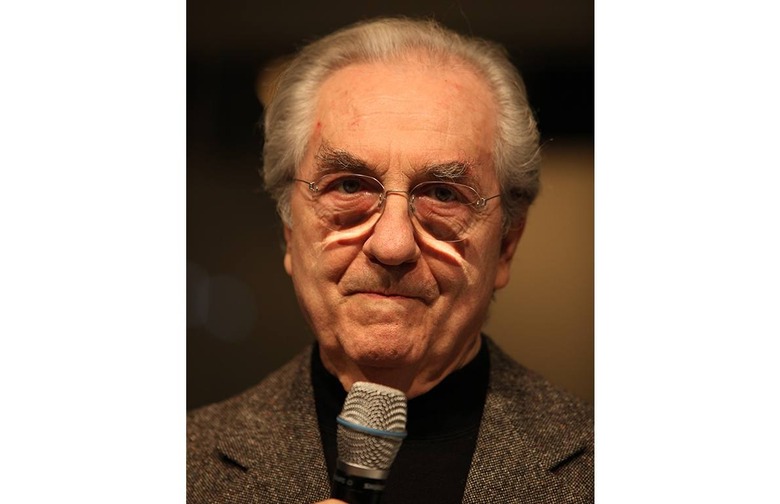Italy's First Michelin 3-Star Chef Succumbs At 87
One of the most renowned and influential chefs in Italy, Gualtiero Marchesi, died of cancer in Milan the day after Christmas, three months shy of his 88th birthday.
Marchesi was arguably Italy's first truly contemporary-minded chef, going so far, at his original eponymous restaurant in Milan, as to banish pasta and risotto from his menu — unheard-of for an Italian restaurant of that era (and rare even today) — to concentrate instead on finely crafted, beautifully presented specialties drawing on the principles of France's then-nascent Nouvelle Cuisine (he had done a stage at Maison Troisgros in Roanne), eventually becoming the first chef in Italy to win three stars from the Guide Michelin for his efforts.
In the course of his long career, he also mentored such future stars of the Italian culinary world such as Enrico Crippa (himself with three stars at the extraordinary Piazza Duomo in Alba), Carlo Cracco (Ristorante Cracco in Milan), Andrea Berton (Ristorante Berton, also in Milan), and "Cucina Pop" chef Davide Oldani (D'O in the Milanese suburb of Cornaredo and Foo'd in Manila and Singapore). He also pioneered the idea of a "total restaurant" at his establishment in the 1980s, in which the table settings and service were stylistically coordinated to contribute to the overall dining experience — an idea now commonplace in the celebrated modern restaurants of Spain, America, and elsewhere.
Born in Milan, Marchesi virtually grew up in the cooking trade: His parents ran a Milanese hotel and restaurant called L'Albergo del Mercato, and he always said that the restaurant's chefs inspired him to pursue cooking as a career. After a turn working and studying cuisine in Switzerland, he returned to the family business, cooking both traditional fare and his own inventions. He opened his own place in 1977, quickly establishing himself as one of the most serious and original chefs in the country — though he was widely criticized for his anti-pasta stand.
He later changed his mind about Italy's most emblematic gastronomic medium and began incorporating pasta into his menus again, but on his own terms. As one example, at Ristorante di Erbusco, at the Hotel L'Albereta in the sparkling-wine-producing Franciacorta region, which he opened in 1993 after leaving Milan, he served cold spaghetti noodles graced with caviar — surprisingly good.
L'Erbusco also won three stars for a time, but in 2008, Marchesi renounced the honor and criticized the Michelin system.
Among Marchesi's many other enterprises were another restaurant, with a cooking school attached, in Milan, as well as restaurants in Rome and Paris. He was a founder of Euro-Toques, a large international chefs' organization, and was the founder and first rector of ALMA, a prestigious culinary academy in Colorno, near Parma. As a change of pace, in 2011, he created what he called the Adagio Burger for McDonald's in Italy — topping a beef patty with eggplant mousse, tomato, and ricotta salata and posing it on a bun topped with toasted almonds.
His most recent project was the establishment of a retirement home for chefs, inspired by the Casa di Riposo per Musicisti in Milan, a refuge for aged opera singers and musicians founded in 1889 by Giuseppe Verdi. Marchesi, himself a musician and great music-lover, found a location for his institution in Varese, where it will open in the autumn of 2018.
Here's a guide to Italian cuisine — both modern and traditional — closer to home.
